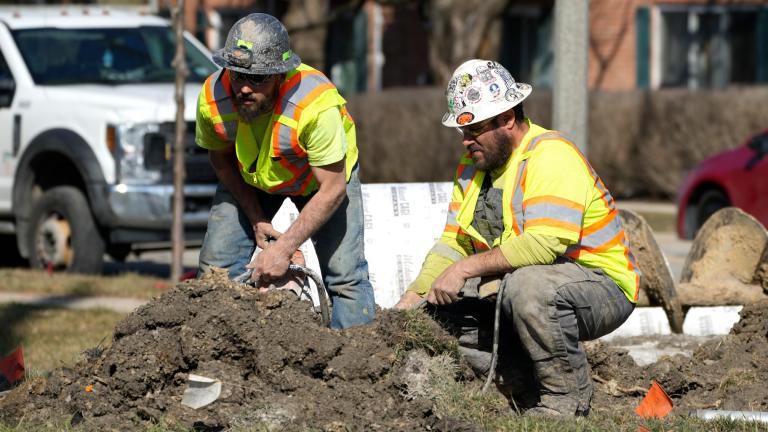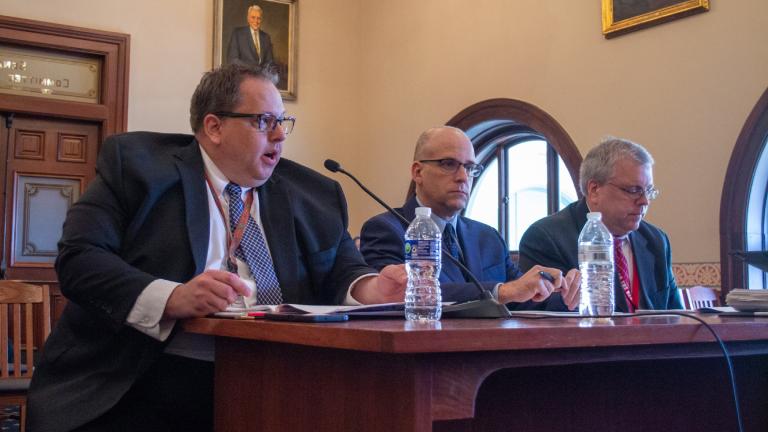For a lot of people, the word “philanthropy” conjures an image of someone who is elderly, wealthy and white. And studies show that image isn’t far from reality — according to a 2020 study, 92% of foundation presidents and 83% of full-time staff members are in fact white, a factor that can affect what initiatives get funding and how much they receive.
“Less than 2% of funding nationally goes to Black communities, Black-led organizations, according to data that we have available,” said Tawa Mitchell, senior program officer at the MacArthur Foundation and co-chair of the Chicago African Americans in Philanthropy leadership team. “And so … representation matters if only to change those statistics and change our approach to giving.”
But after a year that has laid bare persistent inequities in everything from health care outcomes to criminal justice, leaders of philanthropic organizations are reassessing how, and to whom, they are lending their support.
“I think there is now a recognition that we are facing a twin pandemic of both systemic racism in addition to the COVID-19 pandemic and this racism has been a scourge on our society and something that has affected us long before this disease,” said Mitchell. “And I think philanthropic organizations are now recognizing that they can’t tackle one without the other.”
Monique Brunson Jones, president and CEO of Forefront, Illinois’ statewide association representing grant makers and nonprofits, says that the way representation can change the data is in the approach it prompts organizations to take to their giving.
“What we do, the approach is more of a content and context expert. The approach is near and dear to a community that we live in, an experience that we’ve had, and so we want to partner in a way that shows how we’ve experienced that in the value of the people who are currently trying to tackle the issue.”
Brunson Jones says that part of Forefront’s work is to make institutional philanthropy a more welcoming place for Black philanthropists.
“Looking at how we invite that Black philanthropist to the table – for instance, the amount that’s needed to start a donor-advised fund. Those institutional parameters ... change how we engage in communities and how we hire and how we promote in Black philanthropy,” Brunson Jones said.
Philanthropist Liz Thompson says because of their shared history, she and her husband Don knew from the beginning of their philanthropic endeavors that they would focus on education with their organization, The Cleveland Avenue Foundation for Education. In December 2020, The CAFÉ launched a new initiative, The 1954 Project, to raise $100 million to support Black leaders in education over the next five years.
“So many people risk their lives just to be able to learn how to read as a means to freedom if nothing but freedom of the mind. And so there has been this incredible tradition of valuing education for my husband and I — we met at Purdue University, education was our pathway towards success. And so we knew that for many other young people like us it would be the same, that journey would be the same for them … there’s so many statistics that cite when you have a Black educator in the classroom, in the school building as superintendents, the stats for young people increase in the positive ways. And so we decided to focus in that area for better outcomes for all children.”
Mitchell says that, like Thompson, her approach to her work is also informed by her history and identity.
“I think as a native South Sider and Chicagoan and I bring my full self to the work that we do at the MacArthur Foundation on the Chicago commitment,” she said. “Thinking about growing up in South Shore, which was such a rich and wealthy community of mostly the African Americans who gave their time, their talent, their treasure to their community and working hard every day. But often in our neighborhood lacking the resources, the amenities and other attributes that people in other communities take for granted.”








